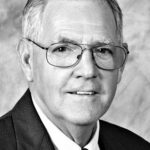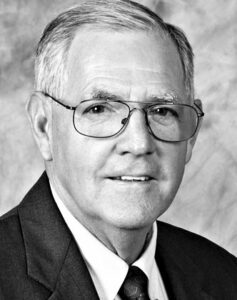“Each one should use whatever spiritual gift he has received to serve others, faithfully administering God’s grace in its various forms. If anyone speaks, he should do it as one speaking the very words of God. If anyone serves, he should do it with the strength God provides, so that in all things God may be praised through Jesus Christ. To him be the glory and the power for ever and ever. Amen” (1 Peter 4:10–11).
Like most churches, ours has a large team of volunteers. We have members who have volunteered to work in the nursery, to clean our building, to keep the grounds mowed, to operate the sound system, to make our tape recordings, to answer incoming phone calls, to teach our classes, to serve as Deacons, Elders and Trustees, to mention but a few. Without these “volunteers” our church could not carry out her ministry.
Yet, when we look into the Word of God, it never speaks of volunteers. It speaks of those who freely serve and who recognize they have a joyful obligation to serve others in whatever manner they are capable (or gifted). In the New Testament the four basic passages dealing with the believers’ use of their gifts are Romans 12, 1 Corinthians 12, Ephesians 4 and 1 Peter 4. In these passages we learn that Christ has sovereignly distributed His gifts to His church through her various members and that they are responsible to use these gifts (interests, talents, training, resources, opportunities) to faithfully serve others.
Nowhere in Scripture do we have the slightest hint that God’s people are to volunteer. Rather, the Scriptures indicate that the use of our gifts should be considered a joyful responsibility. It is for that reason that I do not like the term volunteer when thinking of God’s people serving the body of Christ. The term volunteer may give a believer the idea that he has an option whether or not he is willing to serve in a certain capacity and that if he chooses to serve in that capacity, he is going beyond his actual responsibility (he is “volunteering”)—and therefore has done something meritorious.
Instead, God’s Word tells me clearly that if I have been gifted in a certain area I have no alternative but to use that gift, serving with the strength God gives me, for the good of others. Such service should be performed joyfully, thanking God for giving me the opportunity to serve His body.
Our responsibility is to learn what our gifts are and to use them to the fullest. Our gifts do not have to be perfected in order to serve. That is a mistake made or excuse used by many, which keeps them from serving. Opportunity and need will help determine when our gifts should be exercised. Our abilities to serve in a certain area will surely increase with experience as we exercise our gifts. If we wait until we think were are fully qualified, we may never use that with which God has gifted us.
There are, obviously, believers who are trying to serve in areas in which they are not gifted, or not sufficiently trained or qualified. This is where we need the honest counsel of the church leadership and membership. If I do not have the gift of teaching, I would be wrong to insist that I serve in that capacity. If my voice and mannerisms are unsuitable for the church receptionist, I should instead look for other areas in which help is needed. Thankfully, God has not gifted us all in the same way. Yet, he has placed on all of us the responsibility to serve in the areas for which we are most capable, not as volunteers, but as His children, joyfully accepting the responsibility to serve our brothers and sisters in Christ.

This article is an excerpt from Curtis Thomas’ book – Life in the Body of Christ: Privileges and Responsibilities in the Local Church. A new hardcover edition is now available for order for $24.98 at press.founders.org






















